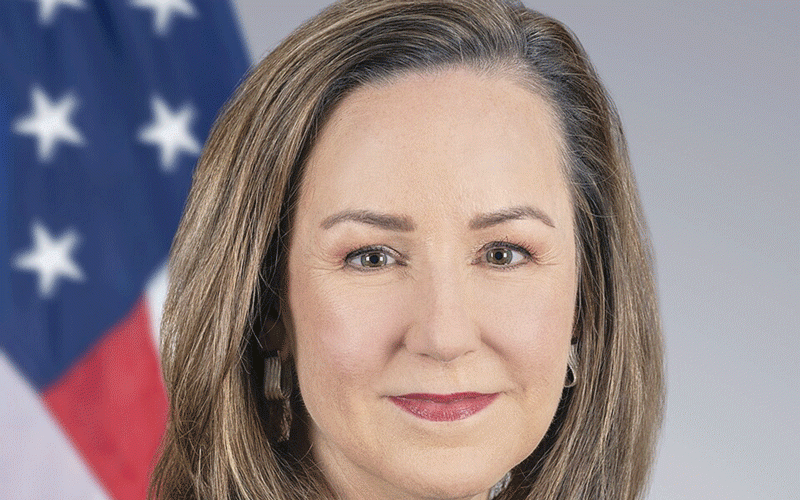
ZIMBABWE’s inadequate spending on the healthcare sector has exposed millions of its citizens to chronic diseases, during a period when the southern African country has suffered an exodus of skilled workers.
It is a perennial problem that has affected millions requiring public health services.
Last year, Health and Child Care minister Douglas Mombeshora revealed Zimbabwe has a shortfall of 64 000 healthcare workers.
Some estimates say the country must double its staff complement by 2028 if it is to fully cover the demands of a growing population.
But apart from staff shortages, funding challenges have seen the country struggling to allocate 15% of its budget to health, in accordance with the 2001 Abuja Declaration.
This commitment was agreed upon by African countries to improve healthcare systems and address pressing challenges such as HIV/Aids, malaria, and tuberculosis.
The budget deficit in healthcare has seen the government struggling to adequately remunerate its healthcare staff, prompting many to migrate to foreign countries in search of better opportunities.
In a paper titled “Addressing Zimbabwe’s Health System Demise and Brain Drain,” Community Working Group on Health (CWGH) executive director Itai Rusike observed that without sufficient funding, poor countries such as Zimbabwe would remain vulnerable to continued brain drain.
- Measles outbreak looms in schools
- COVID-19 cases rising
- Zanu PF old guard retain CC posts
- ‘Poor funding threatens health sector’
Keep Reading
“The health and social services must function optimally for a country to achieve social cohesion, economic growth, and alignment with the global health and security agenda,” he said.
“The current trend of investing in education and professional training, only to lose young and able bodied professionals to wealthier nations with established health systems, is a luxury that poor economies such as Zimbabwe cannot afford.
“The remaining healthcare workers are frustrated and unable to deliver effective care, resulting in the declining health status seen in Zimbabwe.”
Rusike’s report further noted that although Zimbabwe had a relatively robust healthcare system in 1980, the sector has significantly deteriorated, leaving citizens struggling to access basic medicines.
“At independence in 1980, just two years after the Alma Ata Declaration, the government based its health delivery system on the principles of primary health care, significantly expanding access to conventional medicine throughout the country via more health institutions and a defined healthcare workforce. However, decades of socio economic and political challenges have largely undone this progress.”
“These challenges have been exacerbated by systemic weaknesses, including rigid governance and management structures that have failed to adapt to evolving needs.”
Rusike emphasised the need for targeted strategies to fund the healthcare sector.
He warned that consequences of inaction would be dire, with patients battling to access essential services during a period when the burden has been growing.
With only a fraction of the necessary budget allocated to healthcare — rising from 10,6% in 2022 to just 11,2% in 2023 — many healthcare workers are overwhelmed, he said, noting that they often take on multiple roles without adequate resources.
Rusike noted that decentralisation efforts in the early 1990s failed to empower health workers, leading to frustration, talent exodus, and burnout.
“Numerous challenges have reversed much of the progress in Zimbabwe’s health sector, resulting from prolonged socio-economic and political instability. These challenges have been compounded by systemic weaknesses, including inflexible governance and management structures.”
The CWGH director argued that revitalising Zimbabwe's health system was not just necessary, but an urgent priority.
“Universal access to healthcare remains out of reach unless this multi-faceted crisis is effectively addressed. Recent developments — wars, climate crises, and shifts in donor priorities — demand urgent action from the government and the health ministry, well before the 2030 deadline previously highlighted,” Rusike said.
He said international partners and local leaders must collaborate on reforms to ensure sustainable healthcare delivery.
“Poor governance and management have further demoralised healthcare workers, who often lack support in navigating the system’s complexities,” he said.
“Given the extent of staff attrition over the years, consideration should be given to rehiring experienced retirees to mentor young, inexperienced staff. This could help restore the profession’s dignity, improve confidence, service delivery, and patient outcomes.
“The government must enforce constitutional health provisions, public health acts, and measures to prevent diseases and promote health. Strategies should address non communicable diseases, injuries, mental health, substance abuse, and climate induced health issues, easing the burden on an already depleted workforce.”
Key personnel — including doctors, nurses, and pharmacists — have migrated to Britain, the United States, South Africa, and Botswana.










